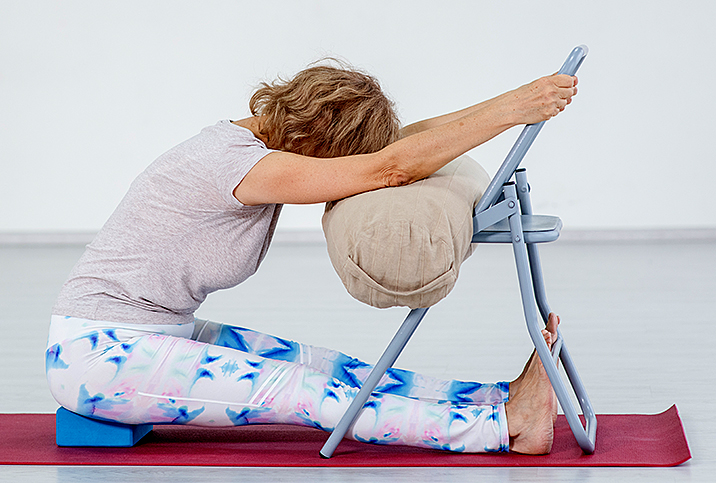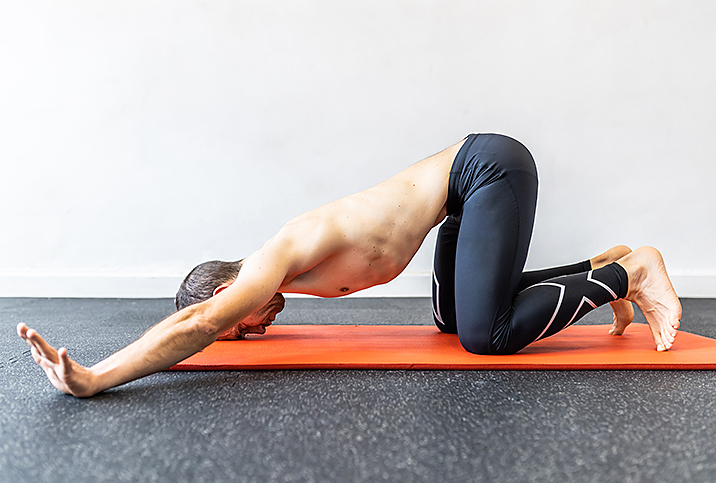How Aging Affects the Pelvic Floor and What You Can Do About It

It is an indisputable fact that bodies change with age. In some ways, these changes can be welcome, but in others, they bring new challenges as navigating health becomes front of mind.
For women, hormonal shifts can hugely impact processes and bodily functions such as mood, temperature regulation, bone density and vaginal tissues. Hormone shifts and life events such as pregnancies and illnesses can also impact pelvic floor health.
Although these new challenges can be intimidating, the more information you have, the more empowered you can be to make lifestyle alterations that may help mitigate the less desirable symptoms.
When it comes to pelvic floor health, women are often left in the dark, told by their family, friends or even healthcare providers their symptoms are just part of getting older. However, there are factors you can control when it comes to pelvic floor functioning so you can continue having fantastically satisfying sexual experiences or simply be comfortable as you adjust to a new normal.
How the pelvic floor changes with age
Aging affects all tissues in the body, including the muscles of the pelvic floor, which support the uterus, bladder and bowel. Declining hormones are primarily responsible. "As a person with a uterus ages, their estrogen levels are slowly declining. This has an impact on the vagina, pelvic organs and the pelvic floor," said Rachel Gelman, D.P.T, a pelvic floor physiotherapist for Intimina.
Estrogen keeps the vaginal canal and surrounding organs functioning optimally, and as the hormone declines naturally with age, tissues thin and can become dryer. "These structures may not be able to work as effectively—the bladder wall is weaker, and the urethra isn't as stable and the pelvic floor muscles aren't able to provide as much support to the organs it supports," Gelman said. "This can lead to things like urinary or fecal incontinence, pelvic organ prolapse, and difficulty with bowel movements or urination."
Along with declining estrogen levels, life events that culminate over time can take a toll on pelvic and vaginal structures, compounding these symptoms and the likelihood of experiencing dysfunction.
"As women age and experience normal life events—including pregnancy, vaginal deliveries, chronic constipation, menopause, or simply age-related muscle loss—these can contribute to a weakening pelvic floor. Damaging these important muscles with trauma, straining and muscle deterioration over time can lead to disruptive lifestyle symptoms, including loss of urine [control], flatulence, and stool leakage," said Sherry Ross, M.D., an OB-GYN, women's health expert at Providence Saint John's Health Center in Santa Monica, California.
All of these factors can also make sexual activity, such as intercourse, foreplay or self-pleasuring, uncomfortable and even painful. A lack of sexual activity can make matters worse, as the vaginal canal can narrow and shorten in response. This makes trying to pick back up on sex frustrating and increasingly painful. Knowing how to prevent and treat these symptoms is vital for enjoyable sex and well-being.
Lifestyle choices make an impact
While much of your pelvic health is impacted by the natural process of aging and life events, certain lifestyle choices can negatively or positively influence the health of your pelvic floor. "Diet, exercise and overall health matter for our pelvic floor, and lifestyle factors such as obesity, inactivity and smoking are all known to negatively impact our pelvic health," explained Heidi Gastler, D.P.T., a pelvic floor physiotherapist with Mountain to Sea Physical Therapy and advisor to Tabu.
These factors can be improved with modifications to some lifestyle habits.
For instance, certain bathroom tendencies can weaken the pelvic floor. "Pushing and straining puts a lot of pressure on the pelvic floor, which can lead to pelvic floor dysfunction. Not fully relaxing when defecating or urinating is another one. Hovering over a toilet seat makes it difficult to relax the pelvic floor, which can negatively impact it," Gelman said. "So even if it is a public restroom, put a seat cover on the seat and sit down."
Constipation can usually be managed with a few alterations to your routine. "Stay well hydrated. Put a step stool under your feet when pooping—it mimics a squat position that is the optimal posture for defecation," Gelman advised. "Take breaks from sitting. Our bodies are not meant to sit, so give the pelvis a break from it throughout the day."
Diet is another controllable factor. "Eating enough protein in our diet, good whole-food nutrition, supplementing our diet where we need it, and good hydration are all a good foundation for helping to maintain our pelvic floor health," Gastler said. Increasing your fiber and water intake can go a long way toward improving motility and preventing constipation.
Exercise is vital for overall health, especially as you age. Regular exercise, including Kegels and core and glute strengthening work, is essential for pelvic floor health. "If you do not have vaginal pain, this could mean [engaging in] sex and/or self-pleasuring as well as a proper Kegel exercise routine. If you are having pain, please seek help from a medical professional such as a gynecologist or a pelvic floor physical therapist," Gastler said.
Kegel exercises are a simple and effective way to strengthen those pelvic floor muscles. "If done correctly and repeatedly over time, Kegel exercises can help avoid symptoms such as stress and urge incontinence," Ross said. "For women, if they do Kegels while trying to orgasm, it can actually enhance your orgasm (who doesn't love that?)."
Maintain pelvic floor health for an enjoyable and pleasure-filled life
A healthy pelvic floor can significantly impact your well-being as you age. In fact, incontinence is one of the main reasons people end up in skilled nursing facilities, according to Gastler.
"Maintaining pelvic floor health is important for maintaining pleasurable sexual activity as we age and keeping us feeling confident and vibrant. Good pelvic floor health is equally important for helping us from leaking as well as for helping us maintain good core muscle strength...and maintaining our pelvic health can help us maintain the lifestyle we are accustomed to," Gastler said.
"Not only does it help women with urinary and bowel dysfunction, it can also help with posture and enhanced sexual pleasure," Gelman agreed. "With all these factors in mind, having confidence in your pelvic floor will also lead to being more confident inside the bedroom and in public."
The experts recommend making an appointment with a pelvic floor therapist to ensure a proper treatment plan. A specialist will be able to give you a professional recommendation on what will benefit your pelvic floor the most.


















